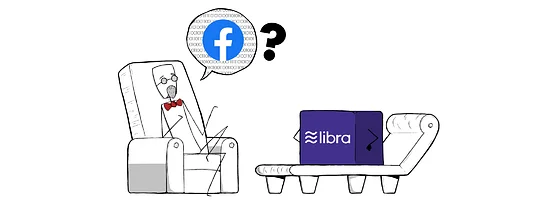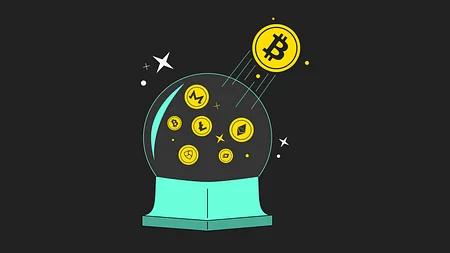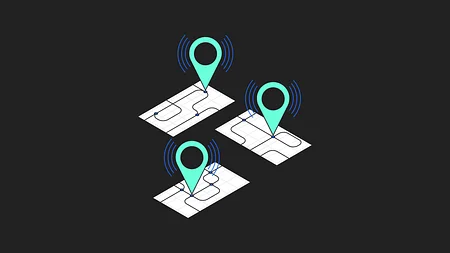Is Libra from Facebook a ploy to get your data?

ICYMI: Libra is here and a lot of people have a lot of questions, starting with: who owns the data?
When Facebook announced their Libra project (joined by more than 20 of the biggest tech and payments companies in the world, like PayPal, Stripe, Visa and many more), one of the most common reactions was: "My God, this must be a ploy to get more data!"
Since the Cambridge Analytica scandal, Facebook has drowned in criticism from governments, activists and many of the general public. The firm, hired by President Trump’s 2016 election campaign, gained access to private information on more than 50 million Facebook users. It offered tools that could identify the personalities of American voters and influence their behaviour.
The idea was to map personality traits based on what people had liked on Facebook, and then use that information to target audiences with digital ads, in direct violation of the Facebook T&Cs.
The aftermath saw three distinct but important takeaways.
The first was the perception that Facebook had become a data-hoarding monster rather than a free and enjoyable experience for the user. The second was that the data Facebook holds about us is not only powerful, it's extremely dangerous in the wrong hands. And thirdly, that it wasn’t very good at seeing what third parties were capable of doing with data gathered through its platform.
Libra is good for privacy (at least in theory)
Enter Libra, the cryptocurrency project that everyone is talking about. Bitcoin and other cryptocurrency prices have skyrocketed in the wake of the news.
Libra is primarily aimed at the estimated 1.7 billion unbanked population, of which 1 billion own a mobile phone. Libra is a blockchain network that allows cheap and near instant payments using its Libra token. It's also important to note that Libra is intentionally not owned or controlled by Facebook, it is a foundation based out of Geneva.
The Libra network does not store your identity or any information about you; all it stores is a wallet address, a wallet balance and a history of transactions. Remember, though, that to use the Libra network you need a Libra wallet. Handily, Facebook has built a wallet called "Calibra" (geddit?).
A Libra wallet holds your Libra coins and would in the future interact with WhatsApp, Instagram and Facebook Messenger to facilitate payments. It would also help you make payments to anyone else on the Libra network, and any store or merchant that accepts Libra.
Additionally, Facebook have promised not to commingle (that's a fun word) data they see in the Calibra wallet about you, with data in the Facebook network.
“We’ve heard loud and clear that you don’t want social and financial data commingled,” Calibra head David Marcus wrote on Twitter, addressing Facebook users. “We understand we will have to earn your trust.”
Why are some people not convinced?
Well, they would say that wouldn’t they?
Facebook doesn't have a good track record on privacy, and while their Calibra project has “promised not to use your financial data to target ads”, Facebook said the same to EU regulators about WhatsApp data when they acquired it. It shouldn’t be a a surprise that for many, that promise rings a little hollow.
Both Libra and Calibra have been very light on specifics on how your privacy would be firewalled between Libra, Calibra and the Facebook-owned platforms more broadly. This could be because the project is still early, but the lack of answers raises suspicion.
But let's imagine Facebook, Calibra, and Libra all put in place a rock solid firewall between Facebook’s systems and the financial transactions you make using Libra / Calibra. Even in this case, all of your transactions happen on a publicly available database. Those transactions are anonymous, so in theory nobody would know they are yours, but as Bitcoin has proven, there are still ways to figure out who’s who on a blockchain.
Facebook, Libra and Calibra have some way to go to convince people their privacy credentials are for real. I think the key here is not just a technical proof, but understanding the motivations behind not storing the information.
What motive would Facebook have for not getting the data?
Facebook’s revenue model has long-relied on having the largest data set about you, and the best tools to target you with ads. However, this has not been the only way to win in big tech. While Facebook were building their targeted advertisement machine, WeChat and Alipay built massive payments networks for their parent companies Tencent and Alibaba.
Sure, both Tencent and Alibaba then use customer data to enhance their products, but by selling financial services, they’re not as reliant on the ad revenue that Facebook is. Increasingly, Big Tech is seeing financial services as a primary way to diversify income and grow as their core business growth softens.
So should I worry?
It’s possibly too early to worry. It would be really interesting to see a true privacy preserving version of Libra, that allowed for the management of big risks (e.g. preventing terrorist financing or fraud).
It would also be very interesting to see financial services incumbents understand, if there were a truly global payment network that lifted a billion people into financial inclusion, what that might mean for their business?
For more on Libra, check out Blockchain Insider Episode 101 where we dissect all the details.



